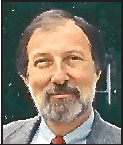I likely will not forget the French student who dropped off her computer with me a couple years ago. She had asked me to install software she needed for class assignments.
As it turned out, she ended up helping me as much as I helped her because all the menus on her laptop were in French, and I needed her to translate. Students usually brought their computers and picked them up later, but by necessity she and I spent more time together than normal.
So we chatted. I asked her about her experiences as a student-athlete; about negotiating Southern dialects as a non-native English speaker; about the differences between food in France and the States. In addition to complaints about our processed breads, she said something else that lingered.
“You say there is separation of church and state,” she began, “but almost every public event event begins with a prayer. You say all men are created equal, but racism is widespread and there are homeless people in so many places. Women do not have the same opportunities that men have. America is not what it says it is.”
Now, I will pit homemade biscuits against any French pastry, but I had (and have) no counterargument to her final comment — because it’s true. It was true then, it’s true now.
We have a self-image that is outdated, and a good portion of our fellow citizens don’t want to change the image to match who we really are or change who really we are to match the image.
We brag to the world about our free elections while half our Congress and three-quarters of our state governments are doing everything in their power to disenfranchise anyone who isn’t white, male and a natural-born citizen who votes Republican.
We have politicians who campaign as law and order until it comes time to render justice to the people who caucus with them or vote for them.
We have all but given up on the idea of real equality for women, for minorities and, most remarkably, for the wealthy. We seem perfectly fine with a privileged few being above the law as long as they throw a few dollars to charities and pose behind oversized checks.
The list goes on, but I want to offer a simple idea for fixing all of these things: Make our elections truly open and free. One vote per person. It’s not a new idea, but sometimes others’ suggestions are too complicated. These should be easy.
First, we should be using the technology available to us. If we can pick the winners of “The Masked Singer” and “American Idol” without scandal, if we can pay our taxes using mobile apps, if we can Venmo $100 to cousin Becky without incident, there’s no reason we can’t vote with our phones.
Further, anyone of legal age should be able to vote. No restrictions based on criminal record. You don’t stop being an American when you commit a crime. You are incarcerated and hopefully rehabilitated. That is enough. Maybe no voting while you’re behind bars, but upon release that right returns.
Such laws are holdovers from the days when newly freed Black people voted their own into office in record numbers, and White Southerners lost their minds. They set up poll taxes and other outrageous burdens for Blacks who wanted to vote — when they didn’t just kill them. But hey, some figured, killing is bad so let’s just lock them up in disproportionate numbers and take away their votes that way. This fixes that.
We should lower the voting age to 16, an age when the lessons we learned about history and civics and economics are still fresh on our minds. It’s also the age when you can get married in 40 states, with parental consent; if you can make that big a life choice, why can’t you pick the elected officials who will directly affect your life?
At the very least, we wouldn’t all be sitting on social media 10-20 years later shaking our heads at former classmates we never knew were so conservative. Or progressive.
National elections could be conducted over the course of a week, 24 hours a day, so people could vote when it’s most convenient. I could toss in term limits, campaign finance reform, etc., but first let’s remove the highest barriers to voting.
If that weren’t the answer, there wouldn’t be so many people trying to raise those barriers in the first place.
Terry E. Manning lives and works in Savannah, Ga. He is a Clemson graduate and worked for 20 years as a journalist. He can be reached at teemanning@ gmail.com.






